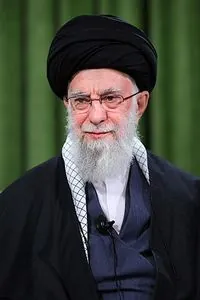Israel Weighs Retaliation Options Against Iran Amid Escalating Tensions
Israel considers various retaliatory measures against Iran following missile attacks. US supports Israel, warning of severe consequences for Iran as regional tensions escalate.

In the wake of recent missile attacks, Israel is contemplating a range of retaliatory actions against Iran, potentially including strikes on oil facilities or nuclear sites. This development comes as tensions between the two nations reach a critical point, nearly 45 years after their hostilities began following the Iranian Revolution in 1979.
Benjamin Netanyahu, Israel's Prime Minister, has pledged to respond to Iran's launch of 180 ballistic missiles towards Israel on October 1, 2024. "We will stand by the rule we established: whoever attacks us – we will attack him," Netanyahu stated, emphasizing Israel's commitment to self-defense.
Israel's war cabinet is currently evaluating various options for what they term a "significant retaliation." These possibilities encompass targeted assassinations and air strikes, according to reports from the Axios news site. The cabinet plans to consult with the United States before finalizing their decision, highlighting the complex geopolitical considerations at play.

The situation has reignited debates about Israel's approach to Iran's nuclear program, which has been a source of international concern since the early 2000s. Naftali Bennett, a former Israeli Prime Minister, has advocated for more aggressive action, urging the government to "destroy [Iran's] nuclear project, destroy their major energy facilities and critically hit this terrorist regime."
This escalation occurs against the backdrop of ongoing proxy conflicts in Syria and Lebanon, where Israel and Iran have been indirectly engaged for years. The recent direct missile attack on Israel marks a significant escalation, with a senior Israeli official stating, "Iran has declared war directly on the state of Israel."
The United States has expressed strong support for Israel in this crisis. Jake Sullivan, the White House national security adviser, emphasized, "We have made clear that there will be consequences, severe consequences, for this attack, and we will work with Israel to make that the case." This stance aligns with the US designation of Iran's Revolutionary Guard Corps as a terrorist organization.
"We have made clear that there will be consequences, severe consequences, for this attack, and we will work with Israel to make that the case."
The international community is closely monitoring the situation, particularly given Iran's development of ballistic missiles capable of reaching Israel and the strategic importance of the Strait of Hormuz for global oil trade. The United Nations Security Council, which has passed multiple resolutions regarding Iran's nuclear activities, may play a crucial role in diplomatic efforts to de-escalate the situation.
As both nations possess significant military capabilities, with Israel maintaining a policy of nuclear ambiguity and Iran consistently denying seeking nuclear weapons, the risk of a direct conflict has never been higher. The international community, including signatories of the Joint Comprehensive Plan of Action (JCPOA), are urging restraint to prevent further escalation in this volatile region.


































